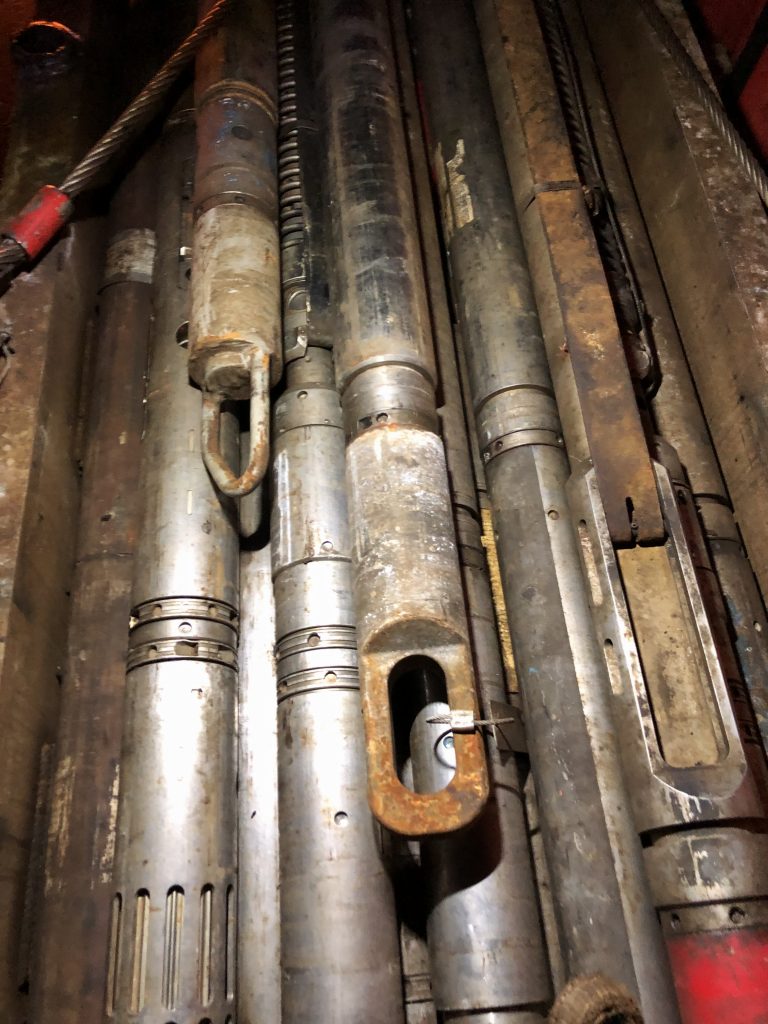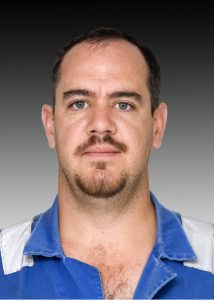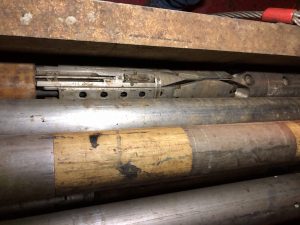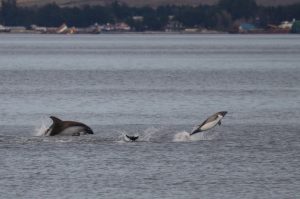
Career Spotlight: Wireline Engineer Clay Furman

-Worked on the JR before: Yes
Clay Furman Interview
Please describe your job duties while on the JR. What will you be doing on a daily basis?
-
-
-
-
-
-
-
-
- I am responsible for the care, maintenance, and running of downhole geophysical instrumentation (logging tools) as well as providing emergency severing services in the event that the pipe should become stuck.
-
-
-
-
-
-
-
Describe one instrument or tool that is essential for you to do your job? Or a piece of equipment on the JR that is useful and why – what does it do?
-
-
-
-
-
-
-
-
- The most critical tools for my job are, of course, my downhole tools. Schlumberger is essentially subcontracted by IODP to provide and maintain a certain set of tools that provide the measurements we routinely need here. It is my responsibility and my pleasure to look after those tools and execute the logging jobs when and as required to get the downhole data needed for this project.
-
-
-
-
-
-
-
Why is your work (or research) important? What question are you trying to answer or how does your work/research help assist/advance scientific knowledge?
- Downhole logs provide in-situ measurements similar to many of the core physical properties measured in the onboard labs. This is important and useful for several reasons, most notably that since downhole logs are a continuous measurement over the length of the drilled/cored interval, they fill in gaps in the data over intervals of poor core recovery. Additionally, log data serves to confirm the measurements taken on the cores at surface as well as highlight differences in certain ones that occur due to the difference in ambient conditions at surface vs. in the hole.

Why the ocean? What made you choose a career at sea or career that involves the ocean?
- I chose my currently employer, Schlumberger, primarily because such a position offered a decent salary and a lot of travel opportunities. I didn’t specifically choose the ocean per se, it just kinda works out that if you need to drill to a depth where you can find a rock of a particular age, it’s generally a lot easier to lower pipe through water than through a mountain, so we do what we do on the ocean rather than on land most of the time.
What are you most excited about for this expedition and/or being on the JR?
- I have been assigned to this vessel for about ten years, and the part I like best about it even after all these years is that no matter the challenge, the crew, staff, and scientists who sail here always rise to meet it. It allows for a lot of out-of-the-box thinking that would otherwise be stifled if I were doing a similar type of job in the oilfield rather than for a scientific program.
What are three things you think are needed for a successful expedition at sea? And Why!
- The coffee machine, the ice cream machine, and the soda machine are CLEARLY the three most critical systems on board!
Some people might say propulsion, drilling system, or shipboard hotel services (i.e. power, light, etc.), but in reality, we manage without those things for brief periods provided our repair people have a cup of coffee or a Coke and perhaps an ice-cream cone to help them think about how best to stop the hypothetical water gushing into the engine room!
If you could answer one question about our Earth – what would it be and why?
- I would be keen to know how we could better harness naturally-occurring energy sources such as geothermal vents, wind, tides, etc. to help satisfy our ever-increasing global need for more electrical power.
What is your favorite sea creature and why?
- Dolphins are my favorite of sea creatures, primarily because I am firmly convinced that they are smarter than the vast majority of people, myself included!

When did you know you wanted to pursue a career in science or an ocean science career?
- Technically, I am an engineer who happens to work on equipment used for science, but not actually a scientist myself.
What do you personally hope to gain or experience while on EXP383?
- I hope, as always, that we have a safe trip and achieve the objectives set forth by our scientific participants. As a service provider, my purpose here is to assist the overall “mission” in whatever way I can; the only personal gain involved is that this is how I make my living, so my personal best interests happily coincide with the greater good of the program.
What message do you have for anyone considering a career at sea or a career involving the ocean sciences?
- If you want to do this sort of a job, then first and foremost you must be versatile and flexible. Obviously, professional competence is a must, but the thing that makes or breaks any remote operation like ours that is being executed by a small group of people with little to no external input is the ability of the people in that group to adapt to the situation. This is not a hypothetical exercise — it’s real life, so things almost never work the way we imagine they will during the planning phase. We try to anticipate whatever contingencies we can, but quite often, the success of the effort comes down to someone finding a creative way to solve a problem that we were unable to anticipate.
What do you do back home when not on the JR?
- I work an “A-B” rotation (i.e. I am on duty for one cruise, then off for the next, then on for the one after that, etc.), so I am on the ship for three periods of about two months every year, whether those are sailing expeditions or the ship is tied up in port between expeditions. With that much time spent offshore, I spend most of the time at home just catching up with the “honey-do” list, fixing things around the house, etc.
Do you get sea sick? If yes or sometimes, please also select the other tab and describe how you cope with it.
- No
The need for space comes in many forms. Which type of space, in general, is the most important to you?
- ___Personal Space
- ___Creative Space
- ___Outdoor Space
- ___Emotional Space
- _X_Physical Space
- ___Spiritual or Meditative
- ___Outer Space
- ___Community Space
- ___Quite Space
- ___Productive/Work Space
- ___Digital/Virtual Space
- ___Public Space
- ___Inner Space
- ___Other:
Why that type of space? What makes it important to you and will it be available while on the JR?
- Storage space is always at a premium on a vessel such as this. As we sail for long periods without any supply vessels supporting us, we are required to bring everything we are likely to need with us from the start. This means all of our primary equipment has to be stored somewhere, but then we also need loads of space for consumable supplies, spare parts, etc. IF there’s anything left over, it’s also nice to have some space to actually do the work, so in my opinion, working on as ship like this give one a great appreciation for the value of storage space!
Wonderful story about Clay!! I was privileged to sail with him a decade ago. Thanks for all you do Clay!!